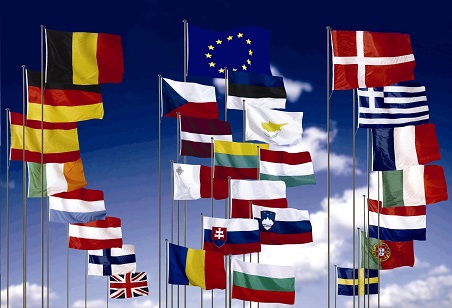Georgia’s development highlighted in EU report

International leaders are praising Georgia’s ongoing reforms and efforts to develop the country across a range of areas as it moves closer to EU integration.
The positive words were noted in an annual EU report that assessed progress in its neighborhood countries in 2013.
The report, titled Neighbourhood at the Crossroads: Implementation of the European Neighbourhood Policy (ENP) in 2013, assessed the achievements made by countries within the ENP and outlined areas where further efforts were needed.
The EU assessed the transition of power in Georgia through two landmark elections as "unprecedented”.
"In 2013 and the first few months of 2014, Georgia successfully navigated complex and unprecedented transition with two landmark elections in which power changed hands peacefully, two changes of Prime Minister, a change of President, a functioning cohabitation and constitutional shift in the political system and moving away from one party dominated state, and at the same time, tackling the legacies of past abuse – while it continued to deliver various reforms in the framework of the Association Agreement, including the Deep and Comprehensive Free Trade Area (AA/DCFTA) and Visa Liberalisation Action Plan (VLAP).”
The EU believed the completion the negotiation of an AA/DCFTA in July showed Georgia’s achievement to continuing its commitment to a European future.
The EU also expressed its commitment to Georgia’s territorial integrity and sovereignty, and to the peaceful resolution of the conflicts in Georgia. It also committed to providing continued support through the work of the EU Special Representative (EUSR) for the South Caucasus and the Crisis in Georgia and the EU Monitoring Mission (EUMM) in Georgia.
"Following the change of government, there have been many positive signs and some cautious steps towards a more open and effective engagement with the breakaway regions, while more decisive steps such as substantively reviewing restrictive aspects of the law on occupied territories are still pending,” the statement read.
The EU invited Georgia to work on:
- Adequate separation of powers and checks and balances between executive, legislative and the judicial powers.
- Reforming the justice system to ensure full independence of the judiciary.
- Ensuring criminal prosecutions are conducted in a transparent and impartial manner.
- Ensuring prosecution activities are performed according to the highest standards of independence.
- Ensuring that pre-trial detention is used only as an exceptional measure.
- Increasing accountability and democratic oversight of law enforcement agencies
- Strengthening media pluralism and independence.
- Adopting comprehensive anti-discrimination legislation.
Deep and sustainable democracy
The EU believed "genuine” elections took place in Georgia in 2013, which confirmed last year’s positive trend, which were considered to have been the best elections held to date.
As well as many positive mentions, the report noted the country’s mixed progress towards freedom of association and freedom of assembly, and said there were "violent examples of islamophobia and homophobia” evident in Georgia.
When speaking about the media, the report found the environment had improved and was becoming more diverse but it remained politically polarised.
The report said Georgia "reinforced the independence of the judiciary through new rules that increase transparency and diminish the opportunity for political interference.”
"The judiciary has become more independent in relation to the Prosecutor’s Office,” the statement read.
It also noted the country’s continued progress to fight corruption but said more needed to be done to prevent, detect and tackle high-level corruption.
It said that tackling "legacy of abuse remained a challenge” for the Government, as more than 20,000 complaints were filed by citizens relating to alleged abuses committed in recent years.
"Nevertheless, 35 former officials of the previous government had been charged with criminal offences at the time of writing. Accusations range from embezzlement to abuse of power and torture. Fourteen are in pre-trial detention, 14 have been released on bail, one was released without restrictive measures, one has been pardoned by the President after conviction and five have left the country,” outlined the report.
The reforms in prison were positively evaluated in the EU report.
"The prison population was halved, with fewer than 10 000 inmates remaining in the system after an amnesty in January, legal changes and presidential pardons.”
 Tweet
Tweet  Share
Share